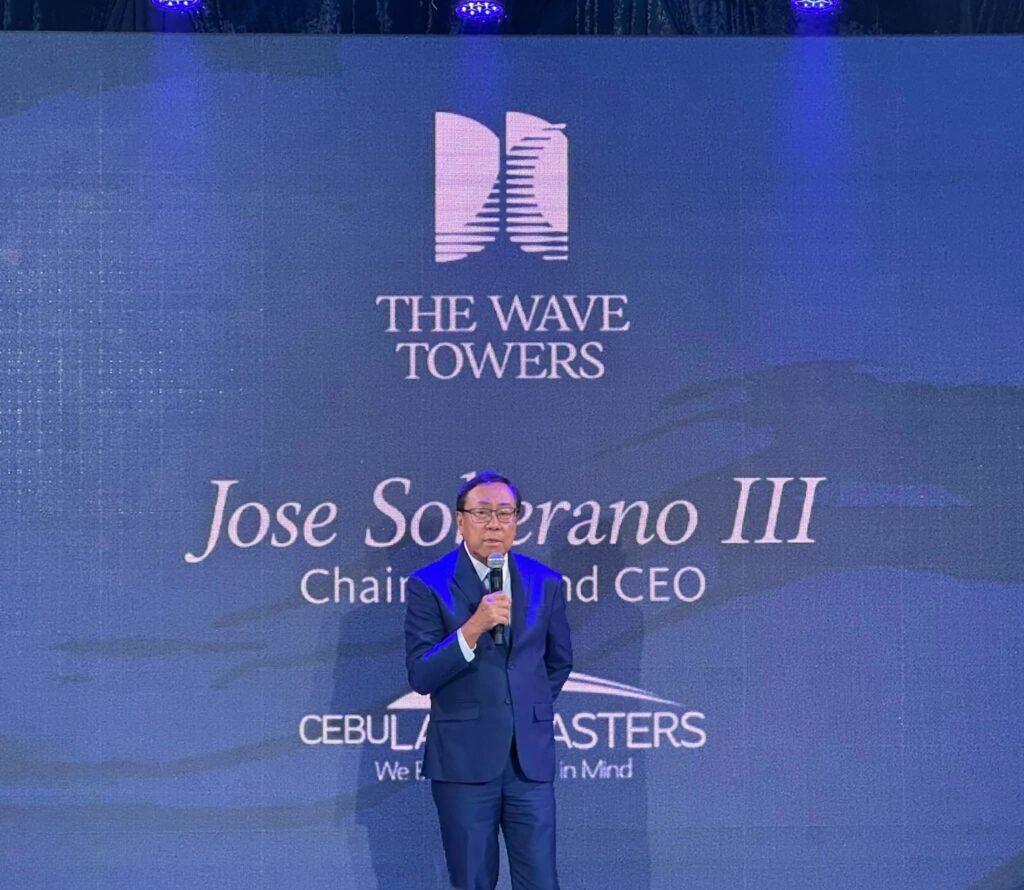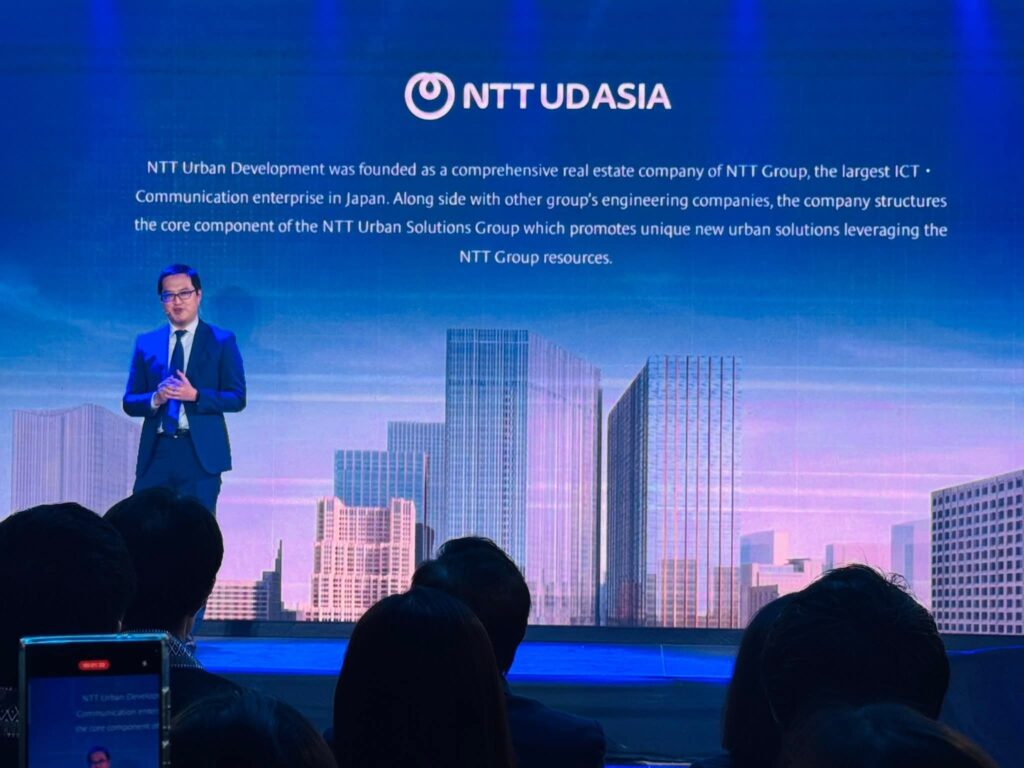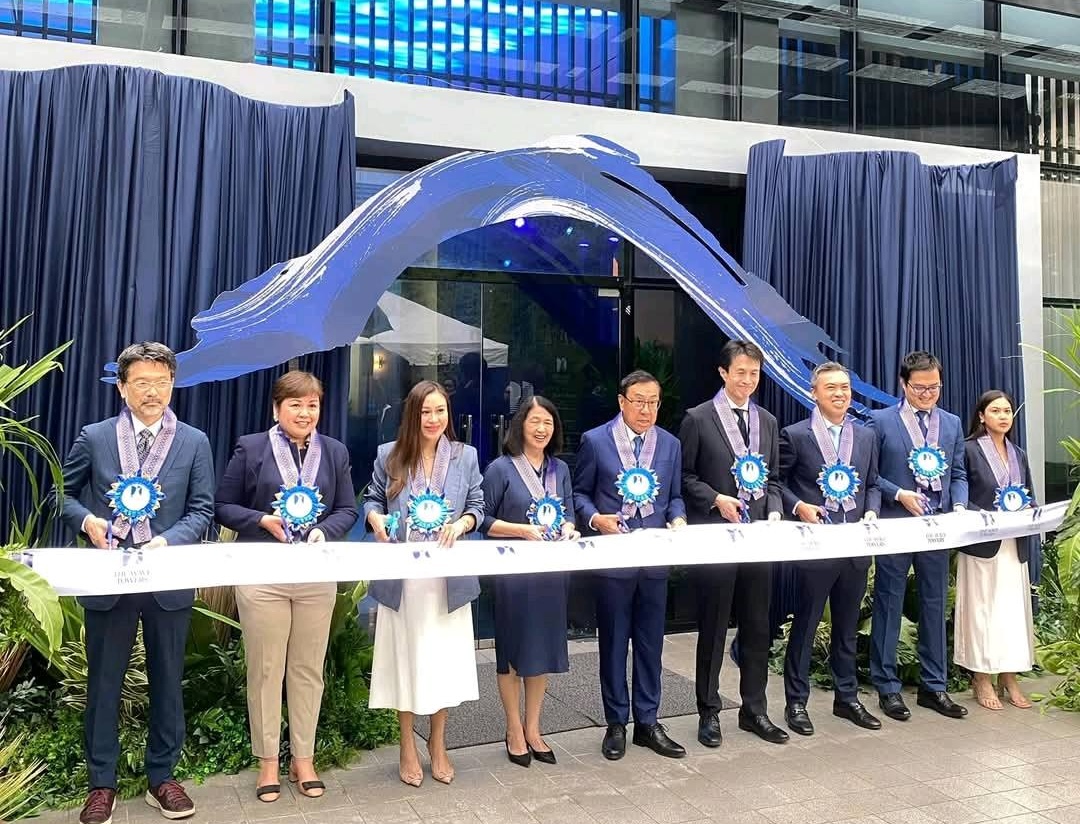CEBU Landmasters Inc. (CLI) recently launched its P6.4-billion premium residential project in Cebu IT Park, developed under its first international joint venture with Tokyo-based NTT Urban Development Corp.
The project, named The Wave Towers, was developed by CLI NUD Ventures Inc., a partnership formalized in 2024. NTT Urban Development is the real estate arm of Nippon Telegraph and Telephone Corp., Japan’s third-largest listed company by market capitalization.

According to CLI, the partnership affirmed the Cebu-based developer’s credibility and positioned it for further global collaborations.
“This is a testament to CLI’s proven track record of development, having earned the trust of a reputable partner with global reach and extensive credentials,” said CLI chief operating officer Franco Soberano during the company’s annual stockholders meeting. “We combined Japanese and Cebuano design values to create a truly unique and future-proof development.”
The Wave Towers rose on a 5,828-square-meter prime lot in Cebu IT Park. Tower 1, The Wave Towers Nagomi, is a 40-level tower that will house 709 premium units. Franco noted that NTT Urban Development’s global footprint included projects in New York, Boston, London and Melbourne.
“Through the combined competencies of CLI and NTT, the joint venture was strongly positioned to compete in the premium segment,” he said.
CLI chairman and chief executive Jose Soberano III added that the joint venture reflected the company’s evolution from a homegrown regional player into a national brand that now attracted international partners.
“It marked the beginning of future collaborations with global leaders seeking meaningful, high-impact investments in the Philippine real estate market,” he said.
CLI closed 2024 with its highest-ever consolidated revenues at P19.53 billion, up four percent year-on-year, driven by a strong sellout rate of 94 percent across all residential projects. Net income attributable to parent shareholders grew eight percent to P3 billion, supported by robust operating cash flow of P4.3 billion.


Total reservation sales reached P20.58 billion, defying a slowdown in the Luzon market. CLI’s recurring income jumped 50 percent to P467 million, mainly driven by a 74 percent increase in hospitality revenues.
“Our journey continued to be rooted in disciplined execution, financial resilience and a deep understanding of the VisMin market,” said Franco. He added that CLI had turned over more than 32 residential projects, translating into over P10 billion in takeouts in 2024 alone.
The company’s asset base reached P109 billion, a significant rise from P5 billion in 2016, while its debt-to-equity ratio improved to 1.58 times.
CLI’s expansion also extended to Metro Manila, where it planned to debut its residential project in the capital by the second half of 2026.
“Despite the noise about oversupply in Metro Manila, our analysis showed it was limited to specific districts,” Franco said. “This gave us confidence to move forward with our first acquisition in the capital.”
CLI planned to launch P24.8 billion worth of new projects in 2025, backed by a capital expenditure budget of P13.8 billion. It targeted P13 billion in takeouts from completions and expected to open two new hotels, adding to its growing hospitality portfolio.
The company also aimed to exceed 100,000 square meters in gross leasable area across retail and office spaces by 2026, as it accelerated its diversification into recurring income businesses.
As part of its strategic move to future-proof operations and enhance governance amid growing scale and complexity, CLI expanded its Board of Directors from nine to 11 members. It appointed two seasoned independent directors: Eugene S. Acevedo, former president and chief executive officer of RCBC, and Dr. Winston Conrad B. Padojinog, outgoing President of the University of Asia and the Pacific and the Center for Research and Communication.
